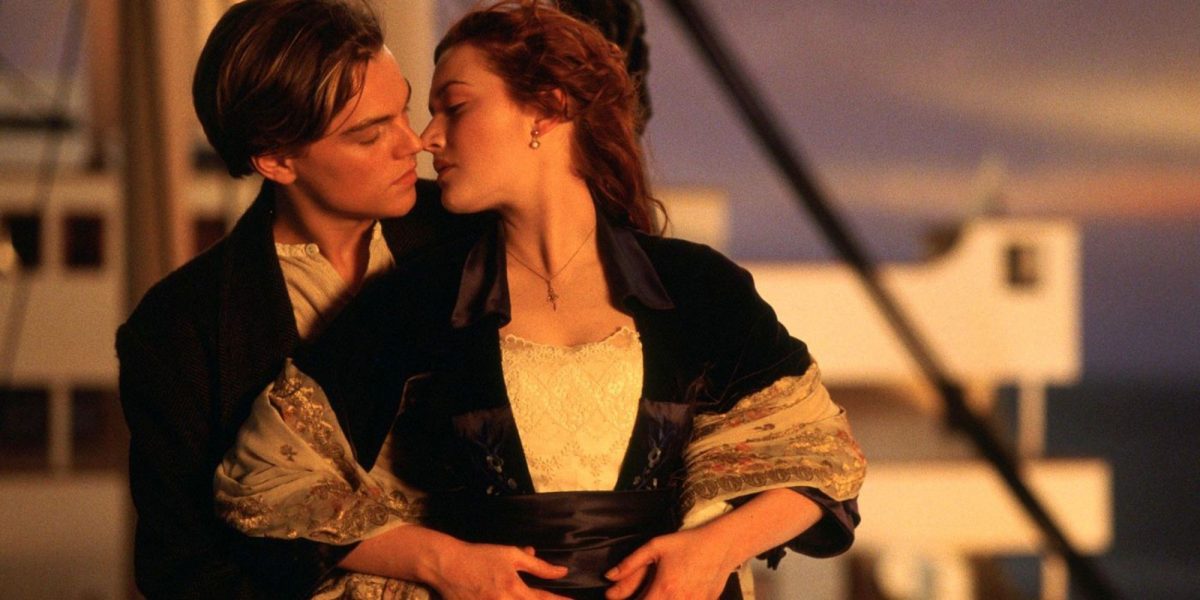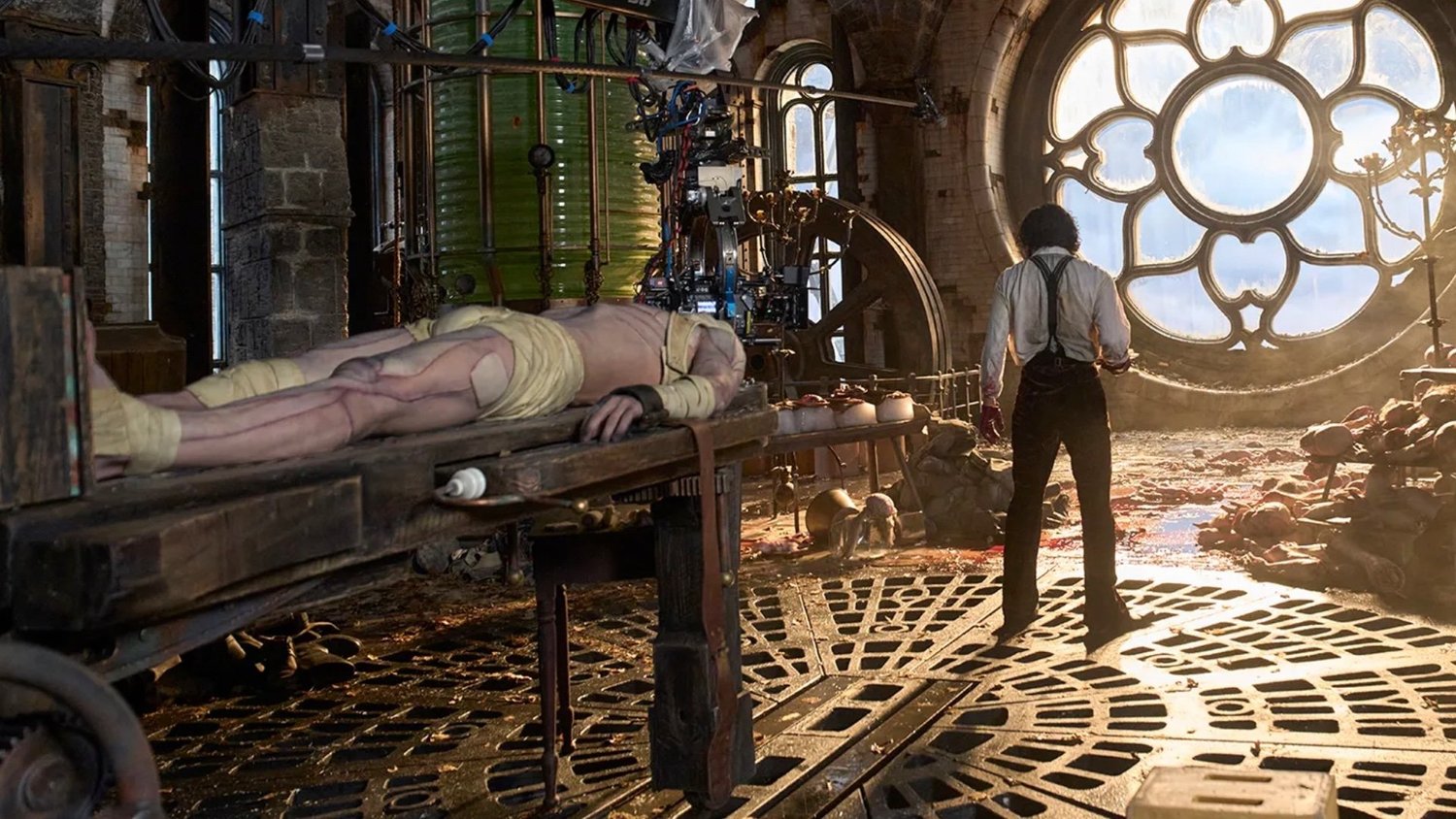
‘Titanic’ Marked the End of a Very Specific Type of Hollywood Blockbuster
Feb 23, 2023
Looking over the list of the highest-grossing movies in history at the worldwide box office, Titanic certainly stands out as something unique compared to the other movies dominating the top 10 on that chart. Sure, Titanic was a super-expensive movie full of groundbreaking visual effects work based on extremely well-known material that everyone young and old knew about like so many other box office titans. But the very absence of action sequences and a sole emphasis on romance makes Titanic something incredibly distinctive compared to Avengers: Endgame and Star Wars: The Force Awakens. Titanic only gets more and more remarkable in its box office achievements as the years go by and more and more legacy sequels begin to crack the $2 billion box office threshold.
COLLIDER VIDEO OF THE DAY
Titanic was built on a long tradition of epic romance movies in Hollywood, but in the context of history, it turned out to be a last hurrah of sorts. Titanic’s uniqueness among the highest-grossing movies of all time isn’t so peculiar when one remembers that this movie preceded the demise of the uber-expensive romantic drama.
‘Titanic’ Carried on the Tradition of Expensive Romantic Epics
The romantic epic used to be a staple of Hollywood filmmaking, with one of the most popular movies of the 1930s, Gone with the Wind, proving so lastingly influential that it solidified that the romantic epic would loom largely over American cinema for decades to come. Titles like Doctor Zhivago re-established that the norms of this genre included a sizable budget, an expansive scope, and a tender romance that would often have to end in tragedy. Because of how costly they were to make, studios couldn’t make romantic epics on a weekly basis like they could with westerns or the sort of sci-fi B-movies dominating drive-in theaters. Still, romantic epics were a reliable way to inject emotions as expansive as the CinemaScope aspect ratio into a piece of audacious filmmaking.
The genre died out after the 1960s mostly because studios pivoted towards either smaller-scale fare meant to grapple with grimier human emotions or, by the late 1970s, began employing the scopes of epics on action blockbusters patterned off of Star Wars and Jaws. Costly debacles like Heaven’s Gate also caused studios to pump the brakes on expensive endeavors that couldn’t be accompanied by a lucrative toy deal. Still, the 1990s, even before Titanic showed up, delivered a handful of romantic epics, including the Best Picture Oscar-winner The English Patient. Titanic, with its then-record-shattering price tag of $200 million, was the movie that truly brought the romantic epic back to life as something that could dominate the culture. Just like with Gone with the Wind decades earlier, a romantic epic was capturing the hearts and minds of moviegoers across the world.
Just as Titanic was following decades of tradition regarding the romantic epic, the massive success of this James Cameron directorial effort inspired a wave of further entries in this genre. This is where Titanic’s presence as the heralding of the ending of a type of Hollywood blockbuster comes into play, though. While Titanic gave the romantic epic an extra jolt of life, that jolt wouldn’t be able to last forever.
Image Via
What Happened to the Romantic Epic After ‘Titanic’?
In the years that followed Titanic, Hollywood, just like when any movie makes a pretty penny at the box office, was desperate to replicate that success. A wave of romantic epics began to creep into theaters, with Michael Bay’s Pearl Harbor being the most obvious example of a Titanic knock-off (since it too was a three-hour romantic epic hinging on a distinctly American tragedy). Additional romantic epics that, at the very least, were made more financially palatable to studio executives in the wake of Titanic’s success included Cold Mountain and The Curious Case of Benjamin Button. None of these movies came close to being as lucrative as Titanic, but many of them did find respectable grosses. All three of the aforementioned romantic epics, for example, managed to crack $95 million domestically.
Still, Hollywood quickly found out that one problem with the romantic epic was in its name; to make a movie worthy of being called an “epic,” you needed to spend quite a bit of cash. Titanic had cost $200 million just to make, after all. These projects cost so much to make and barely broke even at the worldwide box office. Unless you became a once-in-a-lifetime box office phenomenon like Titanic, titles like Cold Mountain weren’t going to spawn lots of merchandise and other ancillary revenue streams to offset those mammoth costs. Quickly, the sheen wore off on the romantic epic and Hollywood began to realize that the costs here weren’t often worth it.
RELATED: ‘Titanic’ Combined Fact and Fiction Into an Unsinkable Disaster Movie
Romance Movies Were a Lot Riskier Than Action or Superhero Vehicles
It didn’t help that the 2000s saw Hollywood begin to morph into its current form, with an emphasis on blockbusters based on pre-existing source material. This type of film had always had a soft spot in the hearts of executives, with Titanic’s success in the late 1990s being a reprieve from a deluge of Batman and Lethal Weapon sequels. However, Hollywood’s affection for such films grew even more pronounced in the late 2000s as the economic collapse of 2008 devastated the global landscape. There was now even more risk associated with spending so much on a project as costly as a romantic epic. If studios were going to spend $200 million now, they wanted to try and replicate the next Dark Knight, not the next Titanic.
This shift in priorities also ensured that Hollywood began to abandon films that focused on romance exclusively, like romantic comedies or low-key romantic dramas. Movies fixated solely on people smooching or caught in forbidden relationships weren’t suddenly vanishing from every movie theater (the Fifty Shades trilogy would arrive in the 2010s, after all), but by the time the 2010s rolled around, they would be way less prominent in the theatrical cinema landscape. Action pictures and animated family movies were more important than ever in reaching global audiences, romantic features just weren’t perceived as being as likely to resonate across the globe. With less interest in pursuing any movie emphasizing romantic scenarios, the chances of making the next Titanic dwindled and dwindled.
Image via 20th Century Fox
Will We See Epics Like ‘Titanic’ in the Future?
“Band-aids don’t fix bullet holes,” so said the ancient philosopher Taylor Swift, and similarly, even one big modern romantic epic hit wouldn’t suddenly bring this genre back on top in the cinematic landscape. With each passing year, Titanic’s enormous success at the box office becomes more and more incredible to reflect on. Even with how much spectacle this feature offered (this was a James Cameron directorial effort, after all), it’s just remarkable to imagine people showing up in droves for a movie that was all about sweeping romance and a love that endures even after death. It’s just so far removed from any of the elements that dominate the biggest movies of the modern world (certainly there was no such romance in 2022 box office juggernauts Top Gun: Maverick or Avatar: The Way of Water), it’s like it came from another dimension.
The romantic epic has lasted long enough in the history of Hollywood that it’s doubtful it’ll ever fully die. Every so often, some filmmaker will coerce studio executives to spend exorbitant amounts of cash on a new take on this genre, possibly by dangling the prospect of Oscar glory over the heads of those executives. But the day and age of these kinds of blockbusters being a common fixture of movie theaters is gone. Even in the 2000s, when Titanic knock-offs began invading the big screen, the romantic epic felt like an aberration, not a new normal rewriting all the rules. Titanic, in hindsight, gave the romantic epic a grand send-off, complete with countless box office records shattered and a song that will play at weddings until the end of time. But no matter how lucrative it was, Titanic was still a farewell to a style of blockbuster filmmaking that just doesn’t really exist anymore.
Publisher: Source link
TV Shows That Got Canceled In 2024
TV Shows That Got Canceled In 2024 Which 2024 canceled TV show will you miss the most? Share your pick in the comments! Disclaimer: This story is auto-aggregated by a computer program and has not been created or edited by…
Dec 22, 2024
How The Talk Emotionally Ended After 15 Years
The Talk has officially said "Goodbye." After 15 seasons and 2,993 episodes, the CBS daytime show came to an end on Dec. 20 with a heartfelt farewell from hosts Akbar Gbajabiamila, Amanda Kloots, Natalie Morales, Jerry O'Connell and Sheryl Underwood. The episode began with a standing ovation for the…
Dec 22, 2024
Jennifer Lopez Asked About Turning 60, Age
Jennifer Lopez Asked About Turning 60, Age Never ask a woman her age, a man his salary, or Jennifer Lopez how she feels about turning 60. On Sunday, the actor was interviewed by Variety amid the release of her new…
Dec 21, 2024
Lala Kent Shares Text With Ally Lewber After James Kennedy’s Arrest
The BCU (Bravo Cinematic Universe) was shaken on March 3, 2023, when it was confirmed that Tom and Ariana had ended their nine-year relationship amid the revelation that he'd had a seven-month affair with Raquel. "I made mistakes, I was…
Dec 21, 2024











